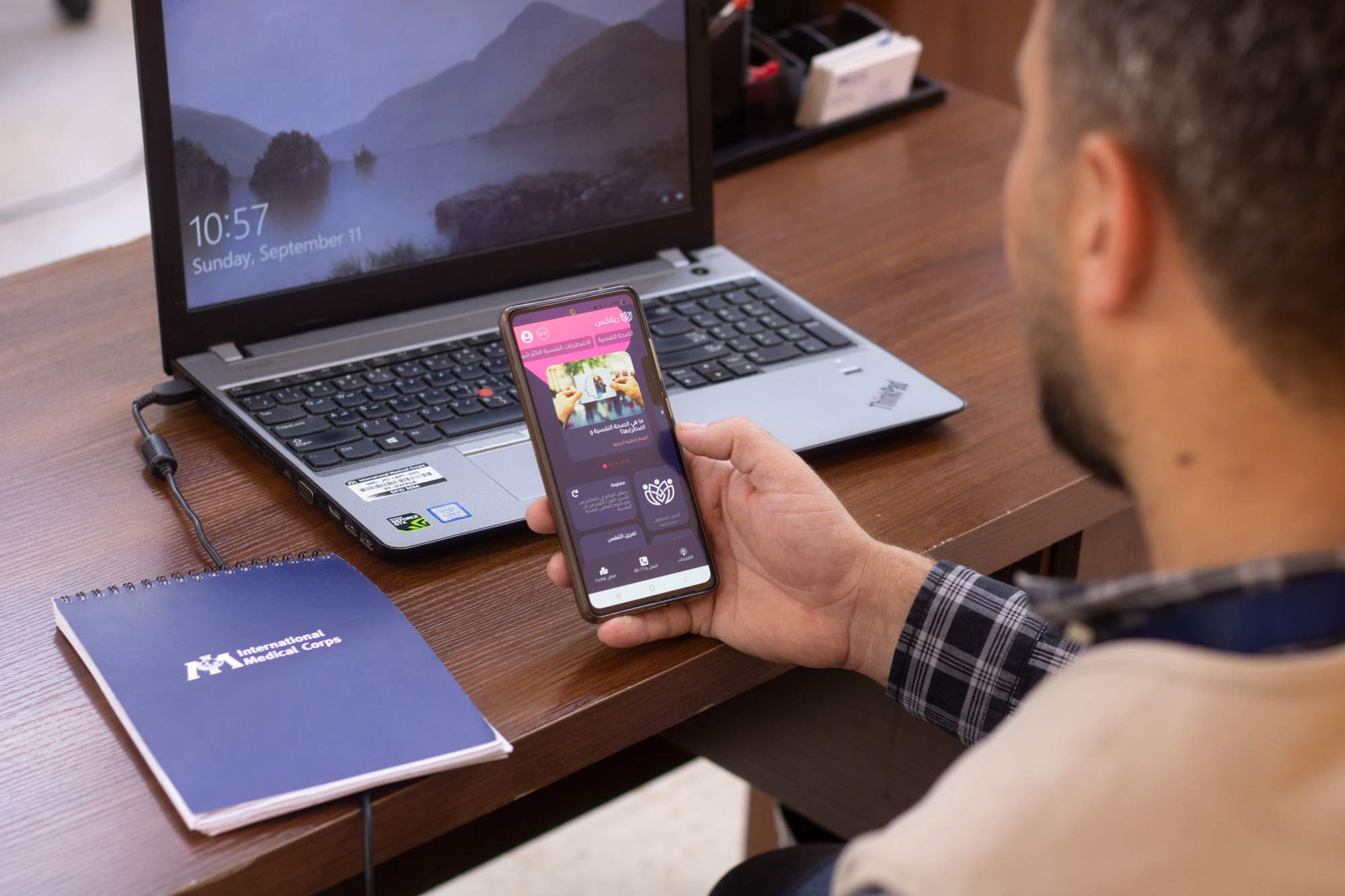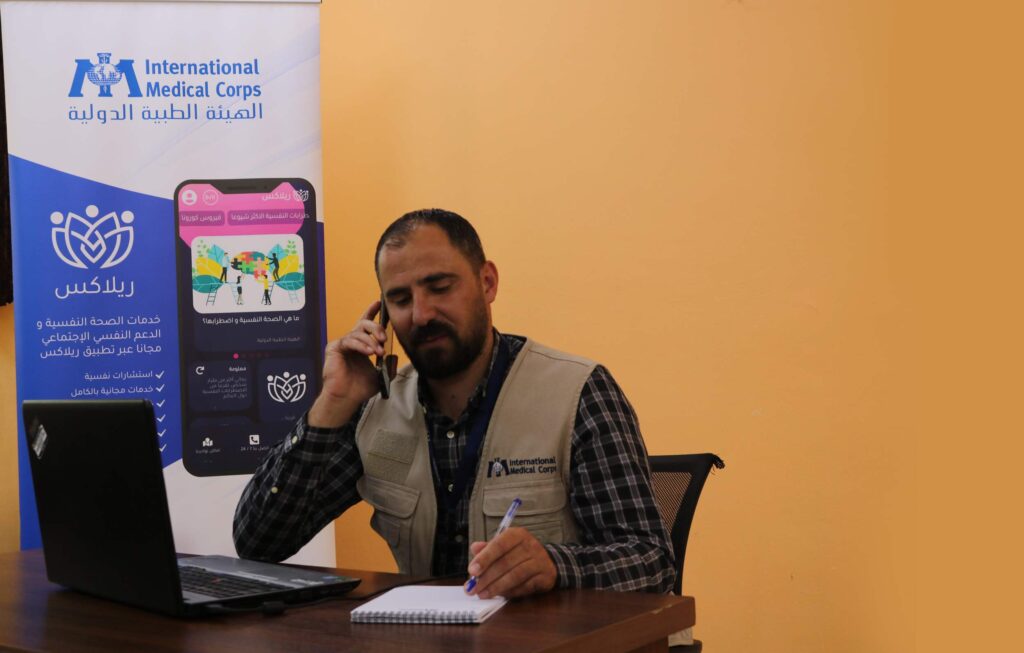A woman we’ll call Samah is a 38-year-old Jordanian working at a local university. She is divorced and lives alone, and although she has relatives, her relations with them have been strained for a long time. Family tensions and economic hardships have caused psychological stress for her. She felt trapped and hopeless, and did not have anyone to lean on for emotional support. Lost and lonely, Samah attempted suicide by intentionally causing a car accident. Though she survived, she continued to suffer from low mood, sleep disturbances and lack of appetite. She had recurrent suicidal thoughts and frequent conflicts at work.
Then she discovered the Relax mobile application, launched by International Medical Corps in the wake of the COVID-19 pandemic when in-person mental health and psychosocial support (MHPSS) consultations in Jordan became restricted. We created the app to enable more people to access mental health care services online, and to offer information on common psychological and neurological disorders and tips on dealing with stress during the pandemic.
The free mobile app, which includes a hotline number, can be downloaded from the Google Play Store and Apple App Store. The user can either call the hotline or connect via video call—with the option to remain anonymous—to receive MHPSS assistance. The app also has articles on common mental health disorders and best practices in mental health care, and lists the location of the mental health clinics run by International Medical Corps, along with their contact details.

Samah had initially approached the Jordanian Women’s Union Association—an organization working to promote gender equality—for help in dealing with her mental state. A volunteer at the association referred her to International Medical Corps and told her about the Relax app. The volunteer then contacted International Medical Corps and told us to expect a call from Samah.
When she called the Relax hotline, an International Medical Corps operator answered. Samah explained her problems to the operator, who listened patiently, without bias or judgement. He encouraged her to speak about her problems freely and comfortably. With a shaking voice, Samah told the operator that she wished to end her “lousy life.”
The operator understood Samah was in emotional distress and needed psychological first aid (PFA). He gave her as much time as she needed to share her story, and explained how her state of mind could lead to suicidal and self-harm tendencies. At the end of their conversation, the operator managed to make Samah promise that she would not do anything to harm herself, no matter the situation.
With her consent, the operator connected her to the nearest community mental health clinic run by International Medical Corps. He referred Samah’s case as an emergency and briefed the mental health team at the clinic about her situation. She visited the clinic the next day, where the mental health team told her about the MHPSS services she could benefit from, free of charge. The team also informed the hotline operator of Samah’s visit, and came up with a tailored case management plan for her that included psychotherapy and medication.
A month later, Samah contacted the hotline operator to personally thank him for the support he had provided to her at a critical moment in her life. She said she appreciated his approach to making her feel comfortable, and the fact that she could speak to him whenever she needed support. “It was the first time in many months that I felt comfortable talking to someone. I feel so much better now. I am on a treatment plan, and I am making progress, all thanks to International Medical Corps,” Samah said.
Relax: A quick go-to for mental health care needs
Since its launch in October 2021, the Relax hotline—which is available in 24×7 shifts to respond to callers—has received more than 800 calls from men and women of all ages, and from different communities, including refugees. Hotline operators have referred almost 60% of the callers to the nearest community mental health clinics run by International Medical Corps, where they received a comprehensive mental health services package.
The hotline operators receiving the calls undergo rigorous training on PFA, mental health case management, brief focused psychotherapy and psychological counseling.
MHPSS remains one of the priority interventions among underserved populations in Jordan, including refugees and host communities. In the past four years, we have provided more than 200,000 mental health consultations in the country. Notably, from January 2021 to August 2022, Syrian refugees accounted for 74% of those asking for MHPSS services provided by International Medical Corps.
In Jordan, the COVID-19 pandemic has exposed the population’s susceptibility to shocks and psychosocial challenges, particularly among the refugee community. Coping mechanisms vary—while some require basic emotional support and referrals to improve their psychosocial well-being, others need specialized services. But access to comprehensive MHPSS services in urban and remote areas remains challenging, due to the lack of these services at the primary healthcare level—a situation made worse by the stigma associated with mental health. The Relax app and hotline aim to overcome this bias, so that more people seek the help they need.
Learn more about our work in Jordan.
